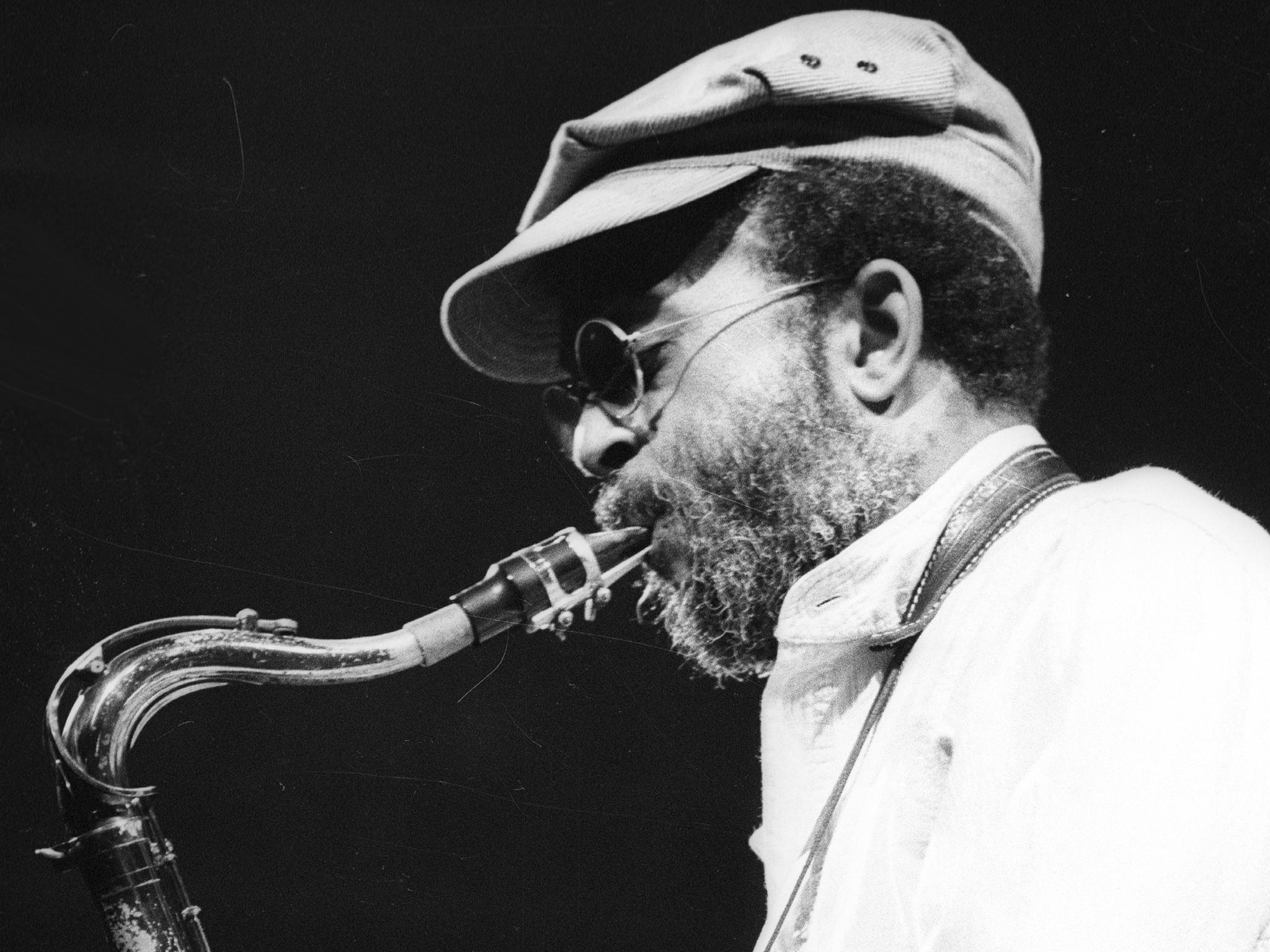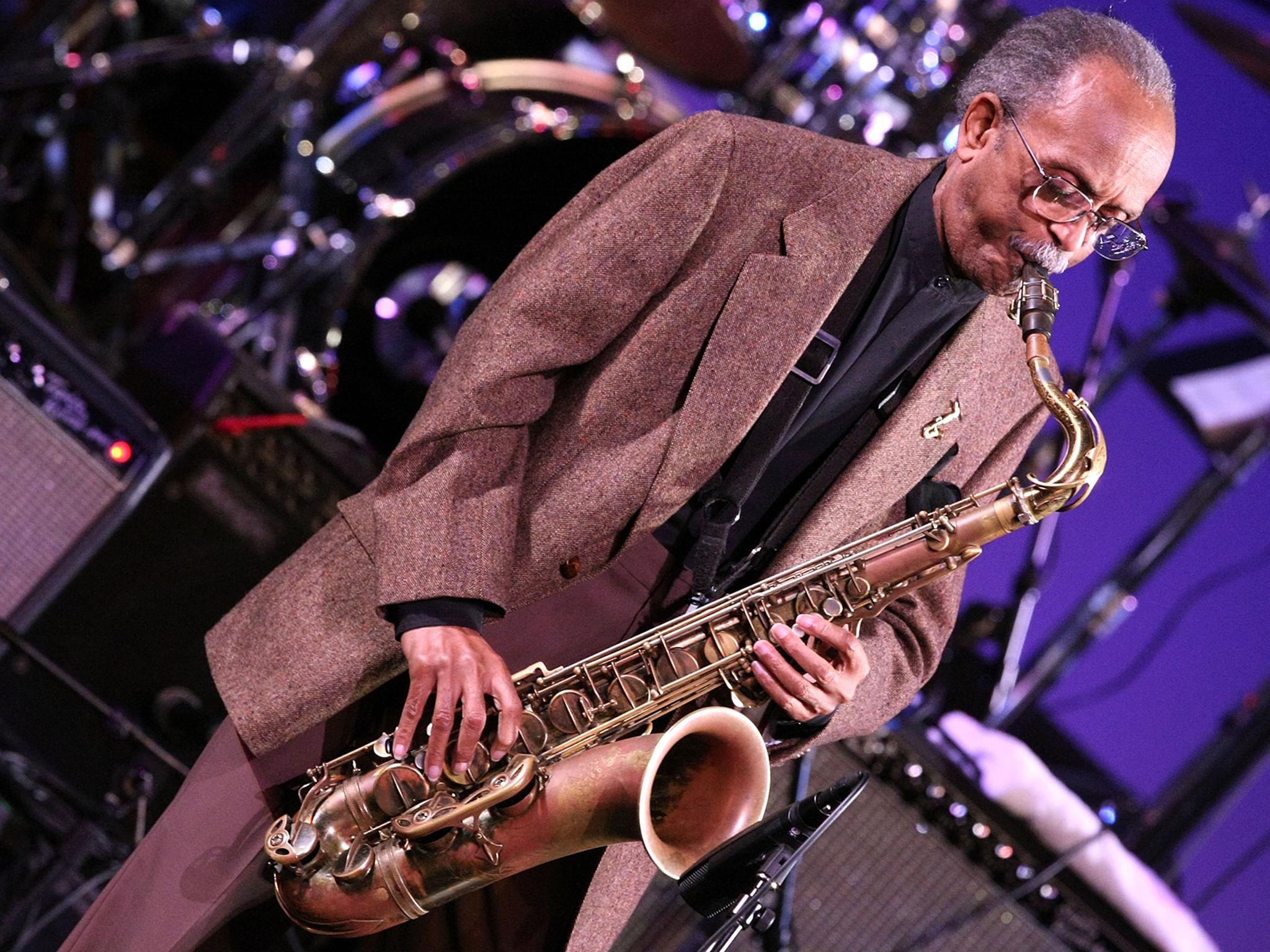Jimmy Heath: Jazz saxophonist and last link to bebop era
An accomplished player and composer, Heath worked with many of the greats of the Forties and Fifties

Your support helps us to tell the story
From reproductive rights to climate change to Big Tech, The Independent is on the ground when the story is developing. Whether it's investigating the financials of Elon Musk's pro-Trump PAC or producing our latest documentary, 'The A Word', which shines a light on the American women fighting for reproductive rights, we know how important it is to parse out the facts from the messaging.
At such a critical moment in US history, we need reporters on the ground. Your donation allows us to keep sending journalists to speak to both sides of the story.
The Independent is trusted by Americans across the entire political spectrum. And unlike many other quality news outlets, we choose not to lock Americans out of our reporting and analysis with paywalls. We believe quality journalism should be available to everyone, paid for by those who can afford it.
Your support makes all the difference.“When he walks into a room,” trumpeter and bandleader Wynton Marsalis once said of Jimmy Heath, “jazz history is made.”
Heath, who has died aged 93, was one of the most accomplished saxophonists and composers of his time and recognised as a living link to a dynamic period of jazz innovation, having worked alongside Dizzy Gillespie, John Coltrane and other musical innovators of the 1940s and 1950s.
He was part of a family of notable jazz musicians that included his older brother, Percy, the longtime bassist of the Modern Jazz Quartet, and a younger brother, Albert or “Tootie”, a drummer. Beginning in the 1970s, they often performed and recorded together as the Heath Brothers.
Jimmy Heath began his career as an alto saxophonist dubbed “Little Bird”, in part for his stylistic debt to the bebop master Charlie Parker, who was known as Bird, and in part for his 5ft 3in stature.
In the late 1940s, Heath led a jazz band in his native Philadelphia that included future saxophone stars Coltrane and Benny Golson. He later joined a groundbreaking big band led by Gillespie, the influential bebop trumpeter Heath considered his mentor. By the early 1950s, Heath had switched from alto to the larger, deeper-toned tenor saxophone to forge a musical identity away from Parker’s inescapable shadow.
In addition to being an accomplished saxophonist, he became a leading composer and arranger, with several tunes that have entered the canon as jazz standards. His boppish “C.T.A.” first appeared on a recording he made in 1953 with trumpeter Miles Davis, and “For Minors Only” debuted on a 1956 recording featuring trumpeter Chet Baker and alto saxophonist Art Pepper. His 1964 composition “Gingerbread Boy” has been recorded by Davis and many others and may be his best-known tune.
Like many jazz musicians of his era, Heath became addicted to heroin and in 1955 was convicted of dealing drugs. At a federal prison in Lewisburg, Pennsylvania, he organised a jazz band among the inmates and continued writing music, which he smuggled out through visitors.
After his release in 1959, Heath said his time behind bars may have kept him alive. “Prison knocked a hole in my life,” he said in 2010. “But in retrospect, it was like a blessing because some my friends who continued to do the stupid thing died young.”

Over the next five years, he released six albums on the Riverside label, including his first as a leader, Thumper. Davis wanted him to take over Coltrane’s place in his group, but one of the conditions of Heath’s probation was that he could not travel more than 50 miles from Philadelphia – a severe handicap for an itinerant jazz musician.
Later, after the restriction was lifted, he worked with leading musicians of the time, including trumpeters Freddie Hubbard and Art Farmer and vibraharpist Milt Jackson before forming the Heath Brothers band.
James Edward Heath was in 1926, in Philadelphia. His father was a mechanic who played the clarinet, his mother sang in church choirs, and the family often played music at home. He began playing the saxophone in earnest at 14.
“When I was about 15 or 16, I went to hear the Glenn Miller band,” Heath recalled in 2007. “When they put the blue lights on the saxophone section and they played ‘Serenade in Blue’, I was in heaven. And I said, ‘That’s what I want to do, and that’s where I want to be, on the stage playing beautiful music.’”
After completing high school in Wilmington, North Carolina, where his family lived before moving to Philadelphia, Heath became a full-time musician. He moved to New York at the age of 22.
In the 1960s, Heath began teaching with the Jazzmobile programme, which took musicians into New York neighbourhoods. For more than a decade in the 1980s and 1990s, he led a graduate programme of jazz studies at Queens College in New York, where he taught a new generation of musicians.
In later years Heath had a career resurgence that included the Grammy-nominated album Little Man Big Band (1994) for which he wrote, arranged and performed as a soloist. A documentary about Heath and his brothers, Brotherly Jazz, was released in 2006. Four years later, he published I Walked With Giants, an autobiography written with John McLaren.
He is survived by Mona Brown, his wife of 59 years, and two children, one from an earlier relationship. A son predeceased him.
Jimmy Heath, musician, born 25 October 1926, died 19 January 2020
© Washington Post
Join our commenting forum
Join thought-provoking conversations, follow other Independent readers and see their replies
Comments